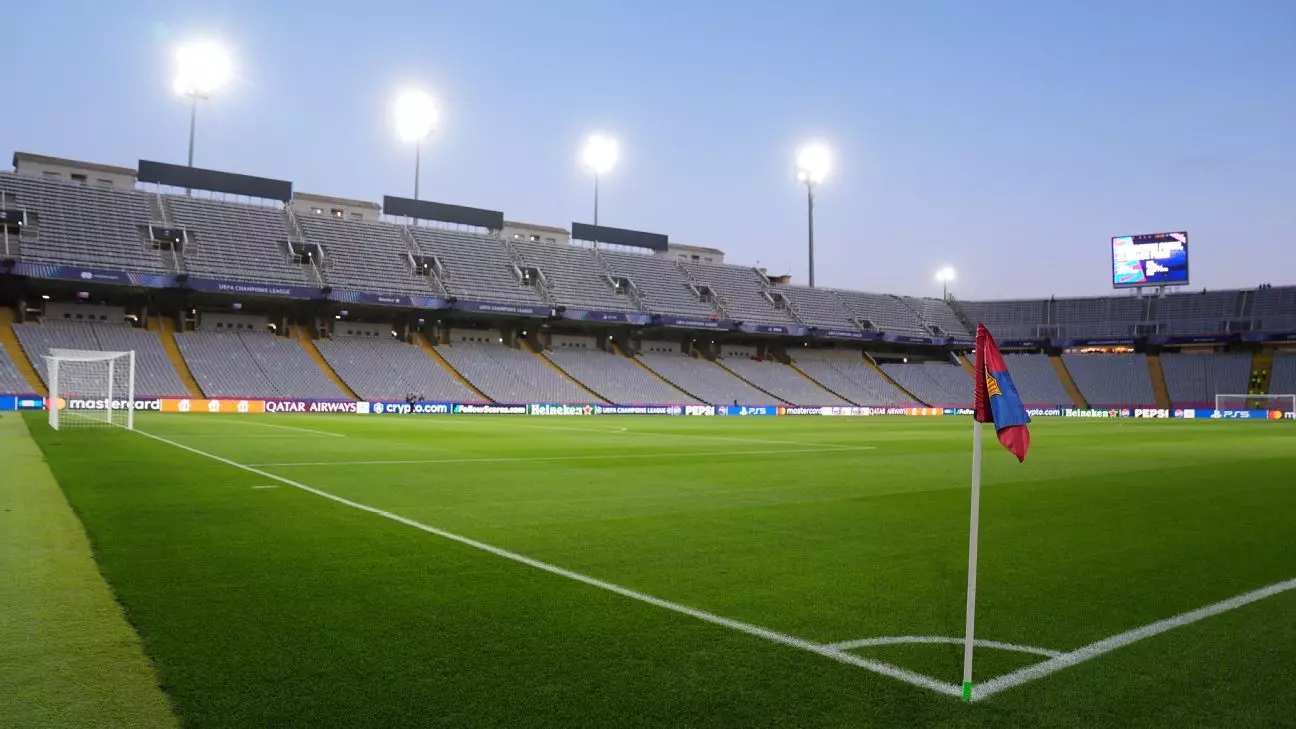In recent weeks, FC Barcelona has found itself embroiled in a serious controversy involving its supporters. A coalition of fan groups, known as the Espai d’Animació (EDA), has called out the club’s management for removing their presence from the Olympic Stadium, where the team is temporarily playing during renovations of Camp Nou. This drastic decision prevents EDA members from participating in crucial matches, such as the recent Champions League clash against Brest and the significant LaLiga game against Las Palmas, coinciding with the club’s 125th anniversary. This situation raises important questions about the club’s relationship with its most devoted followers and the implications of prioritizing a corporate model over genuine fan engagement.
The Financial Dispute and its Implications
The roots of the conflict stem from €21,000 in unpaid fines levied against the EDA for violations related to behavior and chants during previous matches. The club argues that these fines are justified, claiming they stem from a pre-existing agreement regarding conduct within the stadium. However, the supporters assert that the penalties target collective actions rather than individual offenders. This discrepancy reveals a deeper issue at play: the perception that the board is sacrificing the core values of the club and the voices of its most loyal supporters in favor of a sanitized, profit-driven image.
The removal of the singing section offers a glaring example of how commercial interests can overshadow the traditions that have defined the club for over a century. Fans have long served as the heart and soul of FC Barcelona, fostering an atmosphere that elevates matches and strengthens community ties. Silencing such voices not only undermines the essence of fan culture but also risks alienating the very people who have been integral to the club’s identity through thick and thin.
A statement released by the EDA encapsulates the growing unease among supporters, asserting that beyond the money at stake, lies a fundamental shift away from the values that have traditionally characterized FC Barcelona. They lament the replacement of passionate supporter-driven atmospheres with a more transactional approach, marked by a reliance on tourism and commodified entertainment experiences. “Little by little, the socios are losing the weight they have historically had,” the statement reads, expressing concerns about the future of fan influence within the club.
Barcelona’s management must recognize that the shift toward a corporate ethos—seen in practices like prioritizing flashy marketing strategies over fostering rivalries—is damaging to the social fabric of the club. Decisions made in the boardroom, disconnected from the fans on the ground, threaten the historical identity that makes FC Barcelona one of the most celebrated football clubs in the world.
The ongoing dispute encourages a larger conversation about loyalty and engagement within modern sports organizations. Is it possible for a club to grow financially and socially without compromising its core values? The EDA’s passionate pleas serve as a stark reminder that the supporters are more than mere customers; they embody the spirit and passion that drive the club forward. If FC Barcelona continues down this path of diminishing the influence of its fans, it risks losing not only its tradition but also the support that has been vital for its success.
Supporters are an integral part of any sporting institution, and the repercussions of sidelining them can be drastic. The EDA has emphasized the importance of their role, stating, “You don’t play with the club’s dignity or its history.” Their call to action is a necessary reminder for Barcelona’s management to reevaluate its choices. The current leadership must consider listening more closely to its supporters, valuing their input, and fostering an environment where both financial performance and loyal fan experiences coexist positively.
The ongoing tensions between FC Barcelona’s management and its devoted supporters encapsulate a broader struggle within sports organizations today: balancing commercial ambitions with the loyalty and identity of the fanbase. If these tensions continue to escalate, the consequences could be dire not just for FC Barcelona, but for sporting culture as a whole.

